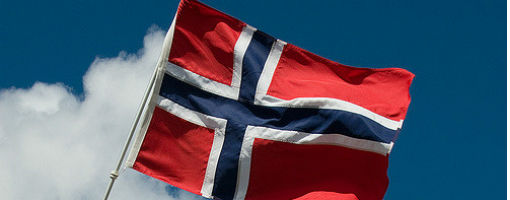The International Sustainability Standards Board (ISSB) has announced plans for further harmonisation of the sustainability reporting landscape as it embarks on its new two-year work plan.
The plans will see developments in the strategic relationships between the ISSB and each of the Transition Plan Taskforce, GHG Protocol, CDP, Taskforce on Nature-related Financial Disclosures and Global Reporting Initiative.
Over the next two years, the ISSB will seek to deliver further consolidation of the disclosure landscape in response to market demand.
The ISSB was established by the IFRS Foundation, with its IFRS S2 requiring that information is disclosed if an entity has a climate transition plan.
The support the application of these disclosure requirements and reduce fragmentation of the information provided in the market, the ISSB plans to support work to streamline and consolidate frameworks and standards for disclosures about transition plans.
This will seek to align with the ISSB’s focus on supporting the implementation of IFRS S1 and IFRS S2 over the next two years, with the ISSB to focus on the provision of high-quality, decision-useful information about the plans that companies have.
With the aim of achieving this, the IFRS Foundation will assume responsibility for the disclosure-specific materials developed by the Transition Plan Taskforce.
Furthermore, the IFRS Foundation and GHG Protocol have signed a memorandum of understanding to put in place governance arrangements so that the ISSB is actively engaged in updates and decisions made in relation to the GHG Protocol standards and guidance.
It will also continue working with the CDP to deliver alignment, have full interoperability with the Global Reporting Initiative, and build upon the recommendations of the Taskforce on Nature-related Financial Disclosures.
Commenting on the announcements, ISSB chair, Emmanuel Faber, said: “As we embark on our new two-year work plan that will see us strengthen and build out the global baseline of sustainability-related financial disclosures, I am grateful to our partners in the sustainability reporting landscape for their commitment to delivering an efficient, effective sustainability disclosure system for capital markets.”
Morningstar Sustainalytics director of stewardship research and policy, Lindsey Stewart, commented: "The expanded collaboration between the IFRS Foundation and several other climate and sustainability reporting organisations is certainly an important step towards delivering a 'global baseline' for such reporting that has so far proved elusive.
"Today, the IFRS Foundation provided more details on an expanded collaboration between its ISSB and the Transition Plan Taskforce, the GHG Protocol, CDP, the Taskforce on Nature-related Financial Disclosures (TNFD), and the Global Reporting Initiative (GRI).
"The ISSB has already absorbed several similar organisations in its two-and-a-half-year life – including the Sustainability Accounting Standards Board (SASB) and the Taskforce on Climate-related Financial Disclosures (TCFD) frameworks that emerged as key investor-focused reporting frameworks at the end of the 2010s. It remains to be seen whether any of the organisations involved in this week’s announcements also end up under the IFRS Foundation’s umbrella in time, but that would not be a surprising outcome.
"The GHG Protocol also announced today that it is adjusting its governance structure to adapt to the new regulatory and standard-setting environment that has emerged since its inception. It is often observed by investors that the GHG Protocol, though widely embedded in climate reporting requirements, was never intended as an investor-focused framework. So, it will be interesting to see how the protocol evolves working alongside the explicitly investor-focused ISSB and under its new governance structure.
"The work of the TNFD will also become a foundation for one of the ISSB’s new standard setting projects Biodiversity, Ecosystems and Ecosystem Services (BEES). The TNFD’s existing framework borrowed heavily from the work of the TCFD before it, and claims to be 'materiality agnostic'. Yet, in my opinion, the TNFD is double materiality-focused as a matter of necessity (i.e. focused on both financial, and environmental and societal impacts). So, I believe considerable adjustments would need to be made to incorporate it within a new IFRS Sustainability Standard."
Latest News
-
Folketrygdfondet’s invested capital rises to NOK 429bn
-
Finland’s Elo reports 7.4% investment return for 2025
-
Ilmarinen assets grew by €5.1bn in 2025
-
KLP records NOK 47.8bn return surplus for 2025
-
Denmark’s Industriens Pensions achieves DKK 18.8bn return in 2025
-
Finns retiring later than expected as effective retirement age rises to 63.2
Podcast: Stepping up to the challenge

In the latest European Pensions podcast, Natalie Tuck talks to PensionsEurope chair, Jerry Moriarty, about his new role and the European pension policy agenda
Podcast: The benefits of private equity in pension fund portfolios

The outbreak of the Covid-19 pandemic, in which stock markets have seen increased volatility, combined with global low interest rates has led to alternative asset classes rising in popularity. Private equity is one of the top runners in this category, and for good reason.
In this podcast, Munich Private Equity Partners Managing Director, Christopher Bär, chats to European Pensions Editor, Natalie Tuck, about the benefits private equity investments can bring to pension fund portfolios and the best approach to take.
In this podcast, Munich Private Equity Partners Managing Director, Christopher Bär, chats to European Pensions Editor, Natalie Tuck, about the benefits private equity investments can bring to pension fund portfolios and the best approach to take.
Mitigating risk
BNP Paribas Asset Management’s head of pension solutions, Julien Halfon, discusses equity hedging with Laura Blows
© 2019 Perspective Publishing Privacy & Cookies







Recent Stories